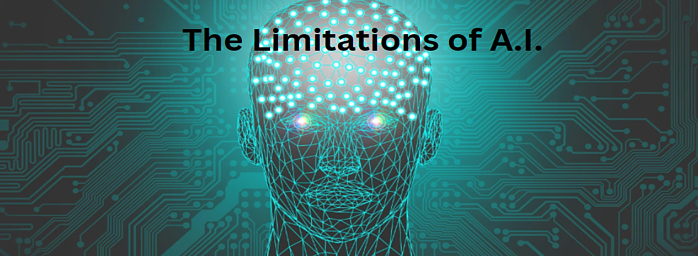What is Artificial Intelligence?
I’m going to start by clarifying what artificial intelligence, or AI, really is. AI typically refers to systems or machines that mimic human intelligence to perform tasks and can iteratively improve themselves based on the information they collect. This isn’t just about robots; it’s also about software that can analyze, learn, and decide.
If you want to understand the capabilities and limitations of AI, it’s vital to address common misconceptions. Many people think of AI as a sort of omnipotent digital brain, but in reality, AI is about creating algorithms great at solving specific types of problems.
Don’t worry too much about AI vaulting into the realm of superhuman abilities overnight. Its current abilities are impressive, but they do have a scope. Your first attempt at using AI might not revolutionize your life or business, but it can make processes more efficient and informed.
Choose something that resonates with you when anticipating the power of AI: it can analyze large data sets quickly, recognize speech or images, or optimize logistics. However, a lot is happening very quickly behind the scenes to make this happen.
More about AI here at “What is the AI Era?”
Technical Boundaries of AI Systems
Now, let’s dig into the technical limitations AI currently faces. It’s important to recognize that despite the lightning speed at which AI seems to be advancing, there are some pretty significant computational limits. It’s not all about having powerful hardware; it’s how AI systems learn and process that matters. For instance, the concept of “machine learning” might be a bit misleading. AI doesn’t learn the way humans do; it recognizes patterns based on vast amounts of data it has been fed. When that data is flawed—say, biased or incomplete—AI’s outputs reflect that.
The computational complexity of AI problems is another significant hurdle. As tasks become more complex, the computational resources required to solve them can grow exponentially. It’s a bit like expecting your smartphone to handle the same work as a supercomputer—it’s simply not practical, or even possible, under current technological constraints.
Then there’s the challenge of decision-making in algorithms. We often hear about AI ‘making decisions,’ but it’s not decision-making in the human sense. It’s more about statistical analysis and probability, not judgment. AI can struggle with nuances and contexts that to a human would be obvious. Issues arise, for instance, when AI has to interact with unpredictable environments or make judgment calls in situations that weren’t included in its training data.
And speaking of training data, that’s a linchpin of AI performance. It’s a meticulous process that requires not just a vast quantity of data but also high-quality, representative data. This is where we often see problems with bias: if an AI system is trained on data that doesn’t accurately reflect the diversity of the real world, its outputs won’t either. It’s not just a technical issue—it’s also a societal one, which brings us to the broader implications of relying on AI systems.
Societal and Ethical Considerations in AI Application
We’re often caught up in the incredible advancements that AI promises, but it’s crucial to consider its impact beyond technology. The integration of AI into our daily lives holds profound implications for society and raises numerous ethical questions.
One of the most pressing issues is how AI affects employment and the job market. There’s the potential for increased efficiency and job creation in some sectors, while in others, automation threatens to displace workers. I’m going to look into both sides of this coin, understanding the complex trade-offs between technological progress and job security.
Then there’s the matter of AI’s decision-making abilities, which aren’t without their moral considerations. For instance, when an AI system is empowered to make healthcare or financial decisions, how do we ensure fairness and avoid discrimination? This isn’t just about the technology; it’s also about embedding human values into AI algorithms.
Moreover, transparency and accountability are essential when it comes to AI. As these systems become more embedded in critical processes, from legal systems to transportation, it’s vital to know how decisions are being made. I’ll explore why open AI frameworks and clear audit trails are necessary for maintaining trust.
Don’t worry too much about AI taking over just yet; humans still play an irreplaceable role in overseeing these systems. That said, ongoing discussions and policy development are crucial as we navigate these uncharted waters, striving for a balance that upholds societal values while embracing innovation.
“The White House’s Executive Order on AI.”
The Future of AI: Overcoming Today’s Hurdles
I’m going to explore the hopeful trajectory we’re on with AI. Despite the limitations we face today, there’s a lot of opportunity in the rapidly evolving field of artificial intelligence.
One exciting prospect is the development of quantum computing, which promises to break through many of the computational barriers that current AI systems encounter. This could mean faster processing, more complex problem-solving, and a significant leap in AI capabilities.
Education is crucial. We need a workforce skilled in AI technologies, capable of pushing the boundaries of what’s possible. That’s why the rise in AI-centered educational programs and certifications is an important step towards bridging knowledge gaps.
Then there’s policy. You’re going to find out about more governments and international bodies drafting regulations and frameworks to ensure AI develops in a safe and ethical manner. This includes everything from privacy laws to ensuring AI systems are designed to minimize bias and discrimination.
A collaborative approach is key. Choose something that resonates with you, and remember that diverse perspectives from different fields can contribute to a holistic AI ecosystem that benefits everyone. Whether you’re an engineer, a policymaker, or a consumer, your input is vital.
Final Thoughts
I hope that this glimpse into the future has shown you that AI isn’t just about contending with technological limitations or ethical challenges; it’s about creating a synergistic relationship between human intelligence and artificial intelligence for a better world.
Read more about “AI Tech here.”
Steve

Some links on this site may be affiliate links, and if you purchase something through these links, I will make a commission on them. There will be no extra cost to you and, you could save money. Please read our full affiliate disclosure here.

